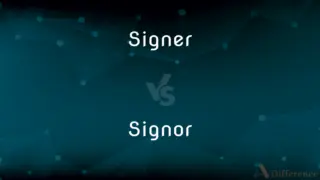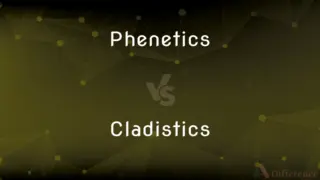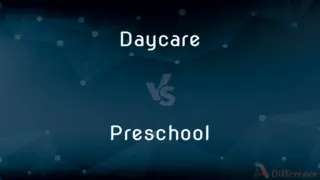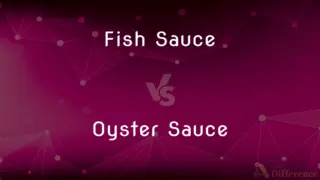Knowledge vs. Perception — What's the Difference?
By Fiza Rafique & Maham Liaqat — Published on July 7, 2024
Knowledge refers to information, understanding, or skill obtained through experience or education, whereas perception is the ability to see, hear, or become aware of something through the senses.
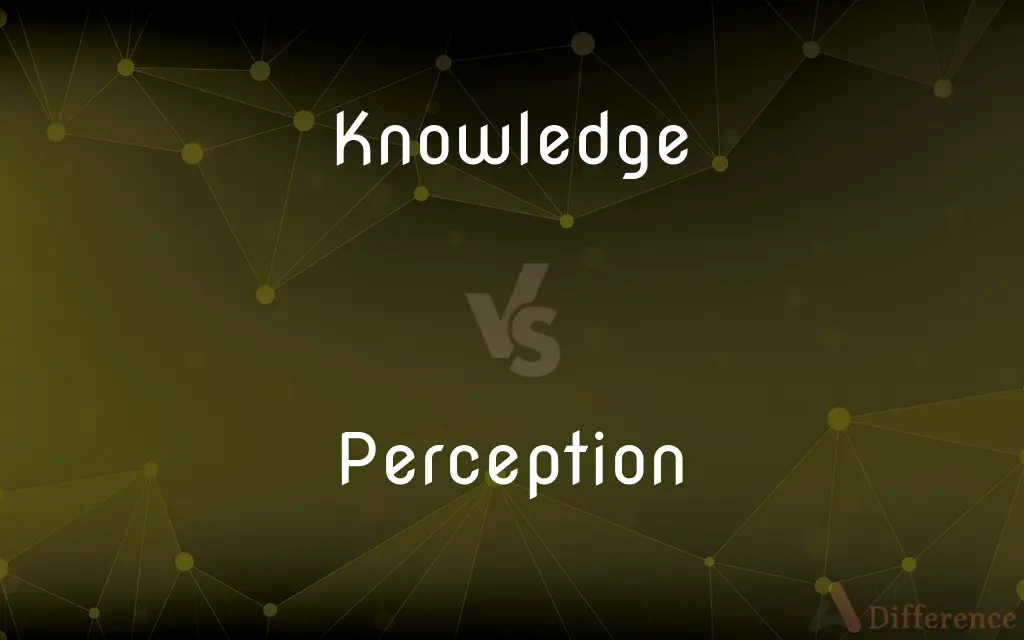
Difference Between Knowledge and Perception
Table of Contents
ADVERTISEMENT
Key Differences
Knowledge encompasses facts, information, and skills acquired through experience or education. It is theoretical or practical understanding of a subject. Knowledge is often considered to be objective and universal, capable of being communicated and shared with others. Perception, on the other hand, is the process of recognizing and interpreting sensory stimuli. It is subjective and can vary greatly from one individual to another, influenced by past experiences, beliefs, and biases.
Knowledge requires cognition and the ability to reason, often building upon existing information to form new understanding or insights. It involves processes such as learning, memory, and comprehension. Knowledge can be explicit, such as facts stated in books, or tacit, which is understood intuitively without being able to be articulated.
Perception, however, involves the sensory organs and the brain's interpretation of sensory input. It is the first step in processing and understanding our environment, leading to our experience of the world. Perception can be influenced by a multitude of factors, including physical, psychological, and environmental.
While knowledge can be accumulated and measured, perceptions are fluid and can change with new experiences or information. Knowledge can provide a foundation for understanding the world, but perception plays a crucial role in how we interpret and interact with our surroundings.
Knowledge and perception, though distinct, are interconnected. Perception can influence the acquisition of knowledge, as the way we perceive the world can shape our understanding of it. Conversely, our knowledge can shape our perceptions, guiding how we interpret sensory information.
ADVERTISEMENT
Comparison Chart
Definition
Information, understanding, or skill from experience/education
Interpretation of sensory input
Nature
Objective and universal
Subjective and individual
Process
Cognition, reasoning
Sensory recognition, interpretation
Dependence
On learning, memory, and comprehension
On sensory input and brain's interpretation
Variability
Can be accumulated and measured
Fluid, can change with new experiences
Compare with Definitions
Knowledge
Understanding acquired through learning.
Her knowledge of French comes from years of study.
Perception
Way of understanding or interpreting something.
Her perception of the event differs from the actual occurrences.
Knowledge
Awareness or familiarity gained by experience.
His knowledge of the city's streets made navigation easy.
Perception
Sensory recognition and interpretation.
His perception of colors was affected by the dim lighting.
Knowledge
Theoretical or practical understanding.
Practical knowledge is often gained through hands-on experience.
Perception
Immediate or intuitive recognition.
The child's perception of danger was surprisingly accurate.
Knowledge
Body of facts and principles.
The knowledge in ancient texts is still relevant.
Perception
Intuitive understanding and insight.
His keen perception allowed him to notice details others missed.
Knowledge
Information held to be true.
The scientists shared their knowledge about climate change.
Perception
A result of perceiving.
Art is subjective and relies heavily on individual perception.
Knowledge
The state or fact of knowing
Humans naturally aspire to knowledge.
Perception
The process of perceiving something with the senses
The perception of a faint sound.
Knowledge
Familiarity, awareness, or understanding gained through experience or study
Has great knowledge of these parts.
Has only limited knowledge of chemistry.
Perception
The process or state of being aware of something
The perception of time.
Knowledge
The fact of knowing about something; general understanding or familiarity with a subject, place, situation etc.
His knowledge of Iceland was limited to what he'd seen on the Travel Channel.
Perception
Insight or knowledge gained by thinking
The perception that inheritance must be coded in DNA.
Knowledge
The deep familiarity with certain routes and places of interest required by taxicab drivers working in London, England.
Perception
Conscious understanding of something.
Have perception of time
Knowledge
The act or state of knowing; clear perception of fact, truth, or duty; certain apprehension; familiar cognizance; cognition.
Knowledge, which is the highest degree of the speculative faculties, consists in the perception of the truth of affirmative or negative propositions.
Perception
The act of perceiving; cognizance by the senses or intellect; apperhension by the bodily organs, or by the mind, of what is presented to them; discernment; apperhension; cognition.
Knowledge
That which is gained and preserved by knowing; instruction; acquaintance; enlightenment; learning; scholarship; erudition.
Knowledge puffeth up, but charity edifieth.
Ignorance is the curse of God;Knowledge, the wing wherewith we fly to heaven.
Perception
The quality, state, or capability, of being affected by something external; sensation; sensibility.
This experiment discovereth perception in plants.
Knowledge
That familiarity which is gained by actual experience; practical skill; as, a knowledge of life.
Shipmen that had knowledge of the sea.
Perception
The representation of what is perceived; basic component in the formation of a concept
Knowledge
To acknowledge.
Perception
Becoming aware of something via the senses
Knowledge
The psychological result of perception and learning and reasoning
Common Curiosities
How do knowledge and perception differ?
Knowledge is objective and can be shared, while perception is subjective and varies among individuals.
Can perception influence knowledge?
Yes, the way we perceive the world can shape our understanding and knowledge of it.
Is knowledge always based on facts?
Knowledge is typically based on facts, principles, or information considered true.
What is knowledge?
Knowledge is the understanding, information, or skills obtained through experience or education.
How is perception formed?
Perception is formed through the interpretation of sensory input by the brain.
Can two people have the same perception?
While people can have similar perceptions, individual differences often lead to unique interpretations.
Can perceptions be wrong?
Perceptions can be misleading or inaccurate due to various factors, including biases or incomplete information.
Is perception only related to vision?
Perception involves all senses, not just vision.
How important is perception in daily life?
Perception is crucial, as it affects how we understand and interact with the world around us.
What is perception?
Perception is the ability to see, hear, or become aware of something through the senses.
Is all knowledge gained through education?
Not all; knowledge can also be gained through personal experiences.
Do knowledge and perception play a role in decision making?
Both play critical roles in decision making, influencing how we interpret information and choose actions.
Do knowledge and perception interact?
Yes, they interact significantly, as perception can influence the acquisition of knowledge and vice versa.
Can knowledge change over time?
Yes, knowledge can evolve with new discoveries or insights.
Can someone improve their knowledge and perception?
Yes, through education, experience, and being open to new information, one can improve both knowledge and perception.
Share Your Discovery

Previous Comparison
Constructivism vs. Social Constructivism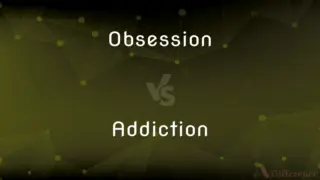
Next Comparison
Obsession vs. AddictionAuthor Spotlight
Written by
Fiza RafiqueFiza Rafique is a skilled content writer at AskDifference.com, where she meticulously refines and enhances written pieces. Drawing from her vast editorial expertise, Fiza ensures clarity, accuracy, and precision in every article. Passionate about language, she continually seeks to elevate the quality of content for readers worldwide.
Co-written by
Maham Liaqat





